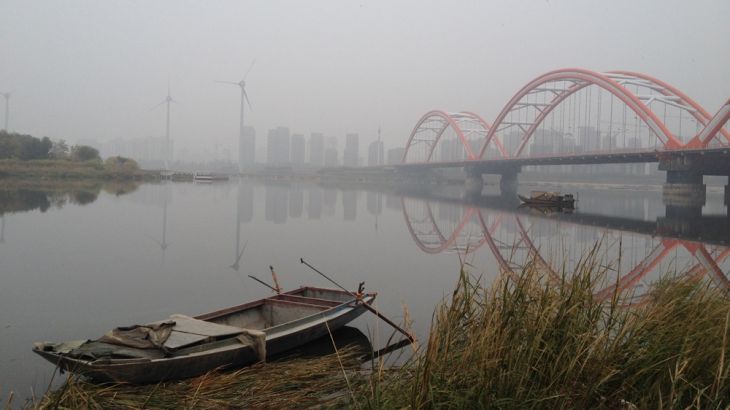
In Your Backyard
From Canada’s tar sands to Chinese advertising billboards, we explore the psychology behind dealing with climate change.
Climate change is no mystery. We know what we have to do to limit emissions and we know we need to change our behaviour and yet we fail to take the kind of action necessary. Why? In this earthrise film we delve into the complex psychology of human behaviour around climate change and how we can turn apathy into action.
Regular earthrise presenter Gelareh Darabi travels back to her roots in British Columbia, Canada, where she meets Robert Gifford, an environmental psychologist. Professor Gifford has written extensively about the relationship between the human brain, psychology and climate change. “We are still very much focused on survival and the ‘now’,” he says. “We get comfortable in our lifestyles and interpret any sign of uncertainty as sufficient reason not to act.” But there is a ray of hope in his research. “Humans display an unwavering attachment to their place of dwelling,” he adds.
Melina Laboucan Massimo is a prominent activist who comes from the Lubicon Cree First Nation in Canada. Their community’s backyard is the famous Alberta tar sands; the size of Greece, it is the largest industrial project on earth. Massimo has been actively fighting exploitation of the tar sands for nearly a decade and her motivation is her close connection to her ancestral land.
Gelareh also travels to Shanghai, China, where she meets renegade advertising guru Handsome Wong. As a new father, he is eager to encourage public debate over China’s devastating pollution problem which claims the lives of 4,000 people a day. Wong’s work caught global attention when he projected images of crying babies on to the smog produced by nearby industrial chimneys. He explains that while environmental protests in China can be dangerous for the activists involved, advertising is a clever and effective way to get important messages out and encourage climate action.